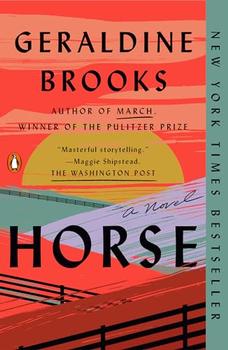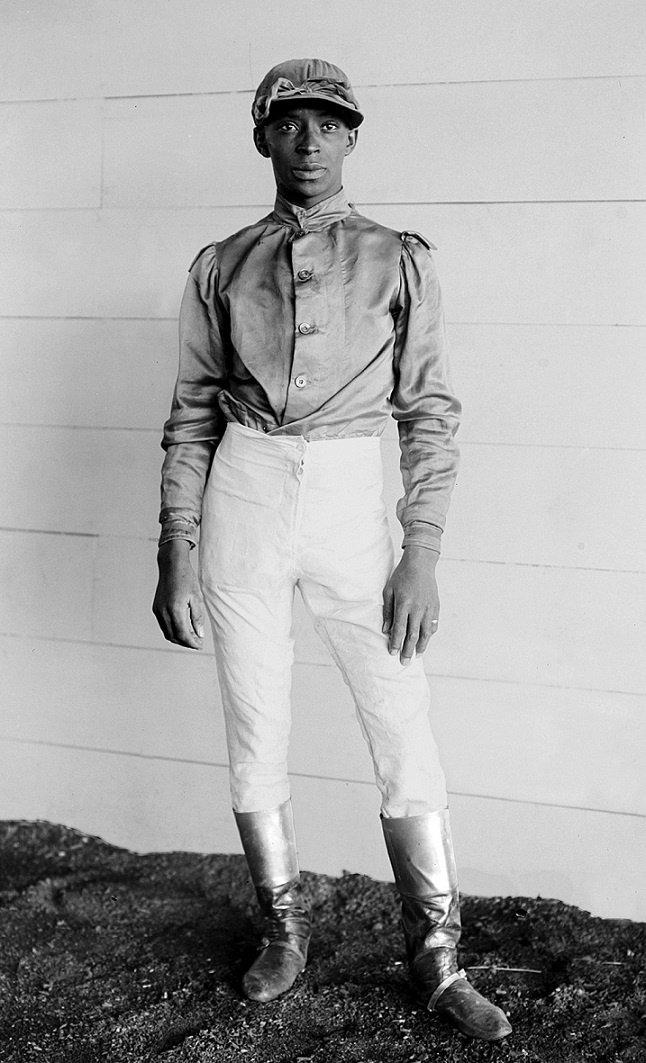Summary | Excerpt | Reading Guide | Reviews | Beyond the Book | Read-Alikes | Genres & Themes | Author Bio

Critics' Opinion:
Readers' Opinion:
First Published:
Jun 2022, 416 pages
Paperback:
Jan 2024, 464 pages
 Book Reviewed by:
Book Reviewed by:
Jane McCormack
Buy This Book
This article relates to Horse
 On its face, the end of the Civil War should have marked a time in which African Americans would be afforded freedom. But the end of slavery did not mean the end of Black oppression. Many white Americans built their fortunes on, and were heavily entrenched in, slavery's infrastructure. These individuals, as well as others, bore great resentment for freed slaves, viewing them as a direct threat to their livelihoods. Rather than reveling in newfound freedom, many Black Americans faced hostility and bitterness, including those in the thoroughbred racing industry. Black jockeys and trainers who once found success in their fields now found a target on their backs.
On its face, the end of the Civil War should have marked a time in which African Americans would be afforded freedom. But the end of slavery did not mean the end of Black oppression. Many white Americans built their fortunes on, and were heavily entrenched in, slavery's infrastructure. These individuals, as well as others, bore great resentment for freed slaves, viewing them as a direct threat to their livelihoods. Rather than reveling in newfound freedom, many Black Americans faced hostility and bitterness, including those in the thoroughbred racing industry. Black jockeys and trainers who once found success in their fields now found a target on their backs.
As Geraldine Brooks notes in the Afterword of Horse, the "thriving" horse racing industry so popular before the Civil War "was built on the labor and skills of the Black horsemen," many of whom were enslaved. There is ample historical evidence to indicate that Black jockeys were both prevalent and successful prior to the Civil War. Contemporaneous equestrian paintings by Edward Troye show the Black jockeys and handlers alongside the horses, illustrating their integral role and accomplishments.
From 1875-1902, Black jockeys such as Oliver Lewis, Isaac Murphy and Jimmy "Wink" Winkfield won the Kentucky Derby, before the tide of Jim Crow racism washed over the tracks. In fact, records indicate that Black jockeys won 15 out of the first 28 Kentucky Derbies in the late 1800s. Horse racing in the South declined as a result of the Civil War destruction, and jockeys began to migrate North for opportunities.
Racism pervaded horse racing after the brief era of Reconstruction. Research shows systemic attacks against Black jockeys, as white jockeys would use tactics such as "boxing them out during races, running them into the rail, and hitting them with riding crops," according to a historical study by researchers Michael Leeds and Hugh Rockoff. Not only did these practices endanger the jockeys, they put valuable racehorses at risk as well, so owners began to overlook Black jockeys, or worse, colluded with white jockeys to exclude them, for fear that their horses would be harmed. Jimmy Winkfield received death threats from the Ku Klux Klan, resulting in him and many other Black riders going abroad to make a living.
From 1921 to 2000, no Black jockeys rode in the Kentucky Derby. The rampant and violent racism had accomplished its malevolent goal. Winkfield's life speaks to the marginalization of Black jockeys as, upon returning to America, he was initially denied entrance to a pre-Derby banquet in 1961, despite being invited to attend by Sports Illustrated. Nearly 60 years had passed since Wink's back-to-back Derby wins, and he still faced deep-seated racism. He was not inducted into the Museum of Racing Hall of Fame until 2004, 30 years after his death.
Long overdue, the Kentucky Derby Museum opened the Black Heritage in Racing Exhibit in 1993, and expanded it in March of 2021. It's now part of a larger collection of tours and exhibits in Louisville honoring the contributions of Black residents dubbed the Unfiltered Truth Collection.
Jimmy Winkfield, courtesy of BlackPast
Filed under People, Eras & Events
![]() This "beyond the book article" relates to Horse. It originally ran in June 2022 and has been updated for the
January 2024 paperback edition.
Go to magazine.
This "beyond the book article" relates to Horse. It originally ran in June 2022 and has been updated for the
January 2024 paperback edition.
Go to magazine.




At times, our own light goes out, and is rekindled by a spark from another person.
Click Here to find out who said this, as well as discovering other famous literary quotes!
Your guide toexceptional books
BookBrowse seeks out and recommends the best in contemporary fiction and nonfiction—books that not only engage and entertain but also deepen our understanding of ourselves and the world around us.